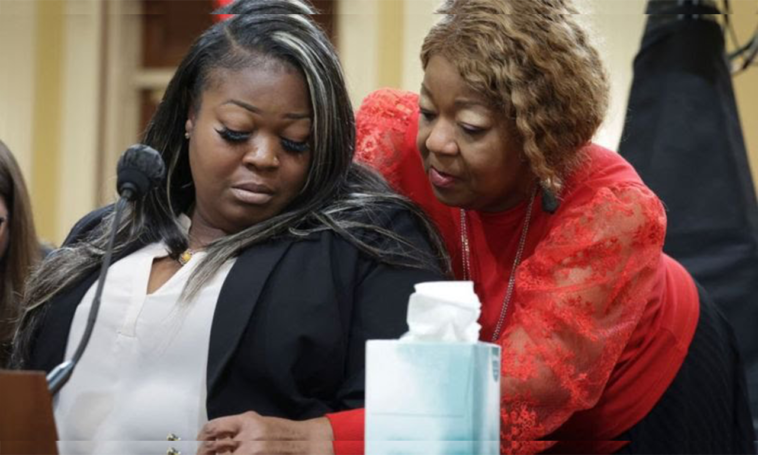Giuliani could pay millions as election worker defamation. 2020 election workers Shaye Moss and Ruby Freeman’s defamation case against Trump’s right hand Rudy Giuliani might result in charging him over $45 Million.
In the unfolding legal drama surrounding Rudy Giuliani, the former mayor of New York City, a trial has commenced to determine the financial compensation he will have to pay to Ruby Freeman and Wandrea Arshaye “Shaye” Moss, former election workers in Georgia.
Giuliani could pay millions as election worker defamation. “This legal saga stems from the judge’s findings that Giuliani defamed Freeman and Moss by baselessly accusing them of being involved in non-existent election fraud during the tumultuous 2020 election.”
Court reporting.
The plaintiffs, Freeman and Moss, are seeking a substantial sum ranging from $15.5 million to $43 million, which includes special damages.
Their legal team asserts that Giuliani’s defamatory statements caused severe emotional distress, prompting them to ask the jury to consider a range of factors, from mental pain and suffering to fear, inconvenience, nervousness, indignity, insult, humiliation, or embarrassment caused by Giuliani and his alleged co-conspirators between 2020 and the present.
What makes this legal battle particularly intriguing is Giuliani’s financial predicament. Reports surfaced in August indicating that Giuliani, once a prominent figure in Trump’s inner circle, was allegedly requesting financial assistance from Trump to cover his legal fees.
This financial turmoil is exacerbated by a separate lawsuit filed by Giuliani’s former lawyers, who claimed that he had only paid a fraction of the nearly $1.6 million owed in legal fees.
Giuliani’s legal woes extend beyond financial matters, as he faces a litany of accusations related to false claims about rigged voting machines favoring President Joe Biden.
The article implies that Giuliani’s involvement in a RICO (Racketeer Influenced and Corrupt Organizations) indictment in Georgia, as part of Trump’s legal entanglements, has contributed to his precarious financial situation.
Returning to the trial at hand, the central issue revolves around Giuliani’s unfounded accusations against Freeman and Moss. Giuliani erroneously asserted that these two Black women were caught on video exchanging USB drives “like they were vials of heroin or cocaine.”
In reality, they were simply sharing a ginger mint. The article critiques Giuliani’s misleading statements, highlighting the racial undertones in linking the innocent exchange to criminal activity.
In a surprising turn, Giuliani seemingly admitted to making false allegations against Freeman and Moss in July. This admission coincided with the woman being officially cleared of any wrongdoing the month before.
This emphasizes the need for Giuliani to issue an apology, albeit one that comes with a considerable price tag — the multimillion-dollar compensation sought by Freeman and Moss.
The upcoming trial is expected to feature testimonies from all three parties involved — Freeman, Moss, and Giuliani. Beyond compensatory damages, the plaintiffs are seeking punitive damages to punish Giuliani for his conduct and to serve as a deterrent to him and others who might engage in similar actions.
The racial aspect is further underscored by Washington D.C. prosecutors accusing Trump, in his fraud trial set for March 2024, of subjecting Freeman and Moss to “vile and racist” threats.
The article concludes on a note of justice, expressing the writer’s hope that Freeman and Moss receive compensation for the harm caused by Giuliani’s false statements.
There is a stark contrast drawn between the potential success of the plaintiffs and the mounting legal challenges faced by Giuliani and Trump.
The underlying sentiment is that justice would be served if Freeman and Moss, who were unjustly targeted, emerged victorious while Trump and Giuliani faced accountability for the harm they allegedly inflicted.




